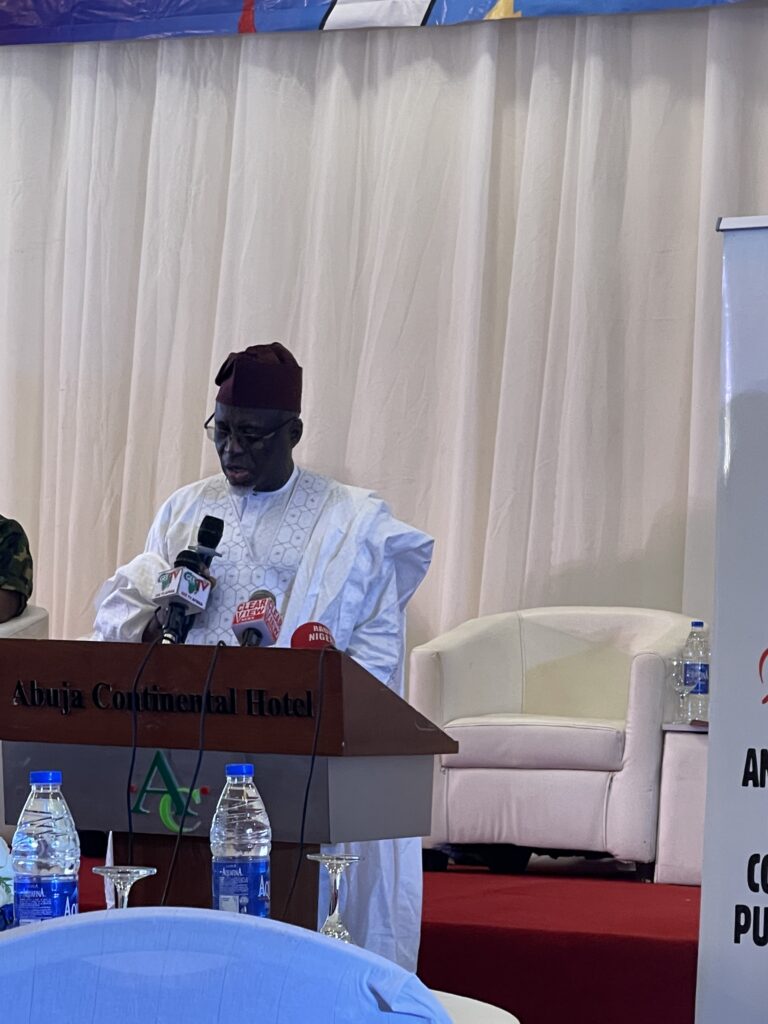“New Economic Policies Are Long Overdue”
By Kamil Opeyemi
Registrar of the Joint Admissions Matriculation Board, Prof Isiaq Oloyede on Thursday lamented on the challenges facing the Nigerian economy.
Oloyede while delivering a keynote address at the annual conference of the Guild of Online Corporate Publishers of Nigeria said In Abuja that the hardship on Nigerians have multiplied with the removal of fuel subsidies.
He however noted that the economic decisions taken by the new Bola Tinubu administration are necessary and overdue.
Oloyede said, “The Nigerian state is undergoing tremendous pressure under an excruciating socio-economic environment. The country’s Gross Domestic Product (GDP) though positive, has been growing at a declining rate over time. GDP growth was 5.01% during Q2, 2021 compared with a growth of 2.51% during Q2, 2023. Similarly, inflation rate worsened, as it increased from 19.64% in July 2022 to 24% by July 2023. Much more worrisome is the value of the Naira. It has now depreciated to above N700/$1.00 in the official market and above N1,000/$1.00 at the parallel market. These economic phenomenal have further put pressure on the well-being of Nigerians.”
Oloyede said there must therefore be what he called “frontal attack” on the enablers of poverty.
“Insecurity, kidnapping and a host of other vices and crises have conspired to rob the country of realising its potentials in productivity and economic growth and development and have contributed significantly to the rising level of poverty.
“The issues confronting us as a nation have resulted in loss of earning assets, decline in the capacity to earn and curtail of purchasing power.
“It is therefore clear that the new administration and newly elected and appointed persons at various levels have their jobs cut out for them. There must be a new direction towards our nation’s economic recovery and to launch us on a path of sustainable growth and development,” he said
He said in planning a roadmap for economic recovery and sustainable development, Nigeria needs to address some issues that have confronted her as a nation.
“Some of these factors have contributed in not small measures to high level of corruption and low productivity in the public sector. For us as a nation to attain social justice, significant economic recovery and sustainable economic growth, there are some fundamental issues that must be addressed. Interestingly, the new government at the federal level has started with some bold actions and decisions, aiming at addressing the unfortunate circumstances we have found ourselves.
“Unfortunately, under the new government, some fundamental decisions and actions that have been taken have further exacerbated and plummeted our path deeper to increased poverty. The removal of fuel subsidy and the attempt to harmonise the foreign exchange rates have further fueled inflation and general increase in price level, with attendant negative impact on disposable income and standard of living. We understand that some of these decisions are long overdue because the whole fuel subsidy and foreign exchange market regimes were not sustainable and were laced with leakages, rent seeking and massive corruption. It is hoped that in the medium term, the new policies will help in turning around the economy and put us on the path of sustainable growth and prosperity.
“But we need to do much more overhauling.”
Lamenting why the public sector is not effective, Oloyede said the compensation mechanism must be reviewed adding that ten gap between the remuneration in the public and private sectors is too wide.
He said, “In another dimension, there is a wide gap in the compensation structure between the public and private sectors in Nigeria. While private sector executives are well remunerated in line with their output and dictates of their offices, the same thing cannot be said for public officers. In fact, salaries of most chief executives of the publicly quoted companies and some government agencies in Nigeria are higher than the emolument of the President of the Federal Republic of Nigeria. Similarly, salaries of some Ministers are lower than those of the chief executives of some agencies and institutions under their supervision.
“These phenomenal encourage corruption and lack of accountability. It gives room for malpractices, financial impropriety, and malfeasance. When officers and executives are not well paid and they are entrusted with huge resources of the state, some may resort to helping themselves.
“There is a lot to do to rejuvenate the economy. One way is to pay a commensurate remuneration for a commensurate work. With good, adequate and competitive compensation structure in the public sector, the system can attract good hands. I believe that paying the right wages in the public sector is one way to improve productivity of workers.
He said, “


